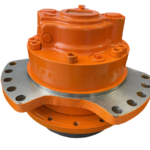In the vast and evolving world of construction and roofing, synthetic thatch has emerged as a groundbreaking solution, blending traditional aesthetics with modern technology. This article delves into the fascinating realm of synthetic thatch, a product that has revolutionized the roofing industry. From its unique properties and benefits to its installation process and maintenance, we’re about to embark on an insightful journey. Whether you’re a homeowner, architect, or curious reader, prepare to be enlightened about this innovative roofing material.
What is Synthetic Thatch?
Understanding the Basics
Synthetic thatch, a marvel in the roofing industry, mimics the look and feel of natural thatch while offering enhanced durability and minimal maintenance. It’s crafted from high-grade synthetic materials designed to withstand various climatic conditions, making it a sought-after choice for diverse roofing projects.
The Evolution from Natural to Synthetic
Historically, thatched roofs were made from natural materials like straw, reeds, or palm leaves. While they added a rustic charm, these materials had limitations in longevity and required frequent upkeep. Synthetic thatch emerged as a solution, retaining the aesthetic appeal but significantly reducing the associated drawbacks.
Why Choose Synthetic Thatch?
The Pros of Going Synthetic
- Longevity and Durability: Unlike its natural counterpart, synthetic thatch stands strong against weather elements, pests, and decay.
- Low Maintenance: It requires minimal upkeep, saving time and money in the long run.
- Eco-Friendly: Many synthetic thatches are made from recyclable materials, contributing to a greener planet.
- Fire Resistance: Enhanced safety features make synthetic thatch a safer choice.
- Aesthetic Versatility: It offers various styles and colors, fitting different architectural designs.
Installation Insights
Step-by-Step Guide
- Preparation: Assess the roof structure to ensure it can support the synthetic thatch.
- Measuring: Accurate measurements are crucial for a seamless installation.
- Laying the Underlay: A waterproof layer is essential for extra protection.
- Fixing the Thatch: Secure the synthetic thatch panels or shingles following the manufacturer’s guidelines.
- Finishing Touches: Ensure all edges and ridges are neatly finished for a polished look.
Professional vs. DIY Installation
While some homeowners might consider DIY installation, professional help ensures precision and longevity. Experts understand the nuances of installation, guaranteeing a flawless finish.
Maintenance and Care
Keeping Your Thatch Pristine
- Regular Inspection: Check for any damages or loose parts periodically.
- Cleaning: Gently remove any debris or dirt to maintain its appearance.
- Prompt Repairs: Address any issues immediately to prevent further damage.
Environmental Impact
A Green Roofing Choice?
Synthetic thatch is often recyclable and can be a more sustainable option compared to traditional roofing materials. By choosing eco-friendly variants, homeowners can reduce their environmental footprint.
Cost Analysis
A Worthwhile Investment?
While the initial cost might be higher than some traditional materials, the longevity and low maintenance of synthetic thatch offer long-term savings. It’s an investment in both style and sustainability.
FAQs
Answering Common Queries
- How long does synthetic thatch last?
- It can last 20-50 years, depending on the quality and maintenance.
- Is synthetic thatch fireproof?
- Many variants are fire-resistant, enhancing safety.
- Can synthetic thatch withstand extreme weather?
- Yes, it’s designed to endure harsh weather conditions.
Summary
In conclusion, synthetic thatch stands as a testament to innovation in the roofing industry. Its blend of traditional charm and modern resilience makes it an ideal choice for those seeking a unique, durable, and low-maintenance roofing solution. As we embrace these advancements, synthetic thatch paves the way for a new era in architectural design, offering a perfect harmony of beauty, functionality, and sustainability.






